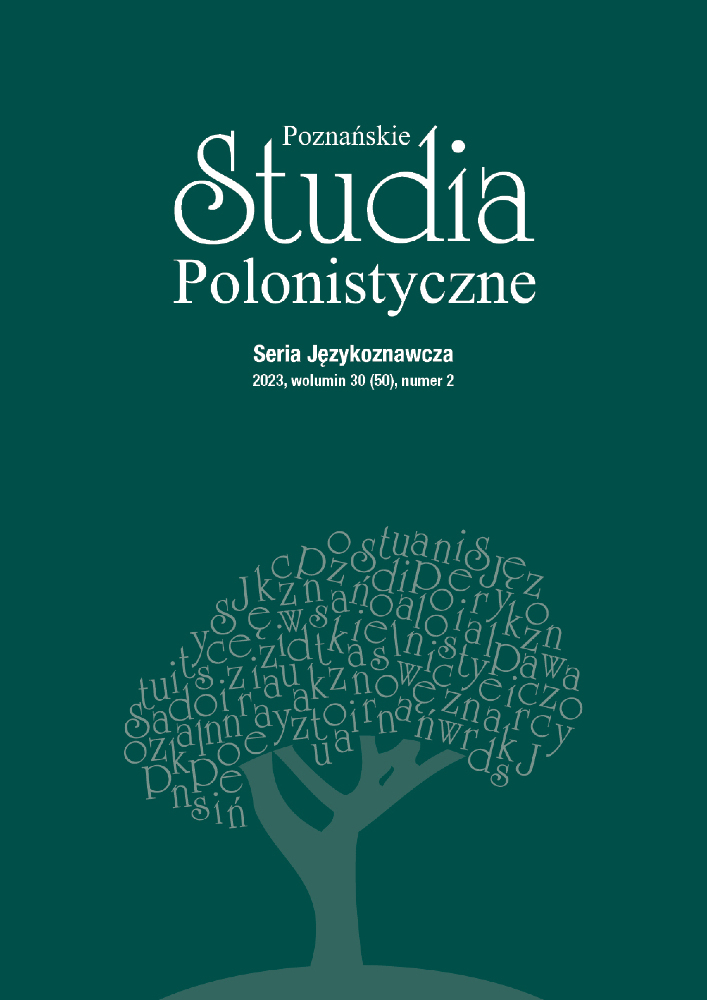New Phraseological Compounds with “Dywan”
in Modern Polish Language
New Phraseological Compounds with “Dywan”
in Modern Polish Language
Author(s): Jolanta Ignatowicz-SkowrońskaSubject(s): Western Slavic Languages, Phraseology
Published by: Uniwersytet Adama Mickiewicza
Keywords: phraseology; new phraseological compounds; foreign borrowings; phraseological calques;
Summary/Abstract: The subject of discussion in this article are new phraseological compounds with thecomponent dywan, which have been in use since the 1990s in Polish texts. These com-pounds, not yet recorded in language dictionaries, have emerged under the influence ofthe English language. They refer to phrases related to the English combinations of rollout the red carpet (for someone) and pull from under someone // something or pull therug from under someone’s feet. The article analyses the ways these expressions functionin Polish texts, considering their formal structure, compatibility with minimal context,and meaning. The research shows that these new combinations, inspired by the Englishlanguage, consist of three phrases: ktoś rozwinął, rozwija, rozłożył, rozkłada less com-monly rozściela, rozścieli, rozpostarł, rozpościerał czerwony dywan, less commonly czer-wone dywany dla kogoś, przed kimś – meaning ‘someone officially and attentively invitesor receives important guests, usually from the worlds of politics, business, culture, etc.’;ktoś less commonly coś rozwinął(o), rozwija, rozłożył(o), rozkłada, less commonlyrozściela, rozścieli(o), rozpostarł(o), rozpościerał(o) czerwony dywan, less commonlyczerwone dywany dla kogoś, czegoś, przed kimś, przed czymś – meaning ‘someone,less commonly something, opens up to someone, something, invites someone, some-thing to something, somewhere; someone, something facilitates something for some-one, the acquisition of something, getting somewhere, especially through specialtreatment’; ktoś less commonly coś wyciąga, wyciągnął (-ęło), wyrywa, wyrwał(o) etc.dywan, dywanik, chodnik spod (nóg, stóp) komuś, kogoś, czego – meaning ‘someone,less commonly something, surprises, has surprised someone with something, disori-ents, has disoriented someone; weakens, has weakened someone, something, with-draws, has withdrawn support for someone, something, harms, has harmed someone,something’.
Journal: Poznańskie Studia Polonistyczne. Seria Językoznawcza
- Issue Year: 30/2023
- Issue No: 2
- Page Range: 29-43
- Page Count: 15
- Language: English

